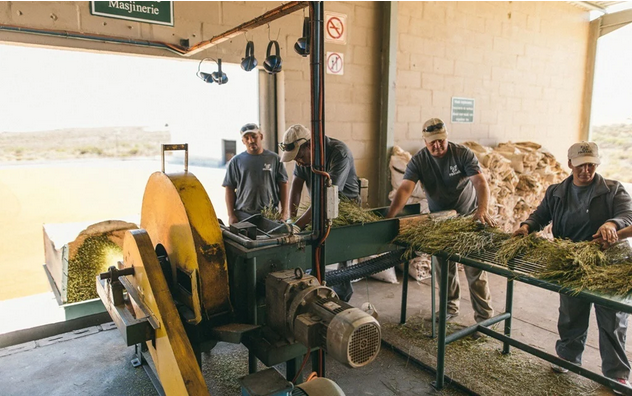(This post was originally published on Fin24)
Rooibos may be a humble pantry staple in SA, but the industry could be in for some big changes as it increasingly becomes a “superfood” – a premium product with prices rising alongside growing demand.
In the last five years, international awareness of the tea has increased, with a global trend towards health and wellness. A severe drought from 2015 to 2017 also affected rooibos crops, temporarily sending prices soaring.
Rooibos is grown nowhere else in the world.
Will Battersby, CEO of BOS brands – which makes BOS iced tea and other certified organic rooibos products – says the red tea is an “amazing opportunity” for SA. Klipopmekaar rooibos tea farm, in the Cederberg mountains, has been BOS’s sole exclusive rooibos tea supplier for all of its products since it was founded in 2010.
“We have an asset that has the potential to bring value back into the country. For all brands looking at rooibos there is a big potential that we should be excited about,” he says.
And, he says, the coronavirus pandemic hasn’t hurt its popularity much.
“In South Africa rooibos is still revered as a very healthy ingredient, whatever product it finds itself in. It is widely consumed in South Africa, despite the raising of prices over a five-year period.
“Last year the demand [locally] certainly spiked during the Covid-19 pandemic and the resultant lockdowns,” says Battersby.
Global growth
In the past five years the BOS brand has expanded its operations to the US and Europe. The overseas market has also been growing steadily, with a slight decrease last year with the pandemic.
“Our business is currently 60% in South Africa, 30% in Europe and 10% in the US, and we are looking to introduce BOS products to a wider global network of distributors in 2021,” says Battersby.
“Japan is the biggest [international] market in the world, followed by the US, Germany and the Netherlands. Of the 20 000 tons of Rooibos produced annually, about 35% to 40% is exported.”
BOS products are now sold in the US, UK, the Netherlands and France, as well as recently in Australia.
“BOS tested the Australian market three times, the first time being soon after establishing the ice tea brand in 2010, and it did not do so well. Last year in November, four years since we last tried, we entered again, and the ice tea has taken off. There has definitely been a shift in Australia towards an openness to a Rooibos-based beverage,” he says.
BOS will be entering both the Chinese and Spanish markets soon.
But can they pronounce it?
Battersby says one challenge remains education.
“As much as people in the know are excited about rooibos and are picking up on it, there are so many who do not know about the health benefits … We need more people to know about this,” he says.
“Internationally, a challenge is the pronunciation of the name rooibos, so much so that it is often referred to as red tea to simplify it,” he adds.
While the Rooibos Council does a “great job” of promoting the tea locally, Battersby says he’d like to see more awareness internationally.
“The funding of research, which the SA Rooibos Council does, is also key, as the studies coming out of research into Rooibos have really enabled us to share, with authority, the benefits of Rooibos.”
Another way to address the knowledge gap is through clear packaging and labelling, he says, “so that people understand clearly what it is they are buying”.
Prices soaring
There was severe drought from 2015 to 2017 and rooibos crops were badly affected. On the back of the bigger demand and decrease in supply, prices went up significantly, impacting consumption in SA.
But in the last few years, the higher price meant that more farmers started producing rooibos, and combined with the drought easing, an abundant supply has returned, and prices have stabilised.
For its part, BOS Brands is still planning to grow its direct-to-consumer offerings and grow its product ranges.
Last year, despite the pandemic, it launched rooibos health shots, combining the tea with probiotics, collagen or ginger and turmeric.
“We sought to further elevate Rooibos to the level of well-known functional ingredients,” explains Battersby.
BOS has also relaunched its web store and added a new subscription service, in line with a growth in online sales, which it plans to grow from 5% of sales in 2020 to 10% to 15% in 2021.

